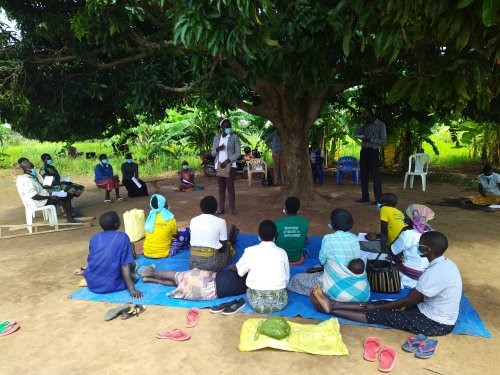Something remarkable has been happening at our counselling sessions in Uganda: people who attend are spontaneously forming their own self-help groups. When they meet at our sessions, they find they have much in common, and they are creating a whole new network of people who support each other, sharing experiences and discussing future plans.
Aid agencies in the Global North tend to self-importantly define our mission as transferring our skills and systems to the Global South, hoping other societies will learn from our mistakes and triumphs.
Growing Demand For Self Help Groups
But in the case of Network for Africa’s work in a post-conflict Uganda, we are delighted to find that people with post-traumatic stress disorder and other mental health issues are shaping their own support systems, once they have learned to manage their trauma. Network for Africa was given a grant to establish 25 groups, but our beneficiaries have gone on to create 61 groups.
This doesn’t make us redundant, however: but it does increase our work load, in a good way. Our local counsellors have a role to play first, in teaching people how to manage their trauma. Once they form their own self-help groups, our counsellors attend to ensure that people with severe problems are referred to the relevant professional medical service.

There also needs to be ongoing monitoring and support from us. A group may decide they are going to start a small business together, for instance, and our counsellors can manage expectations, create business plans and identify loans that aren’t scams (unfortunately, there are plenty of so-called micro-loan providers charging outrageous interest rates in the Global South).
The Self-Help Movement
Academic research shows that self-help groups may be increasingly important in treating mental health issues. People with a first-hand understanding of a particular situation or medical condition know that it helps to talk to someone who has been in the same place. The self-help movement has been growing since the 12-Steps programme was founded in 1935. Research shows that self-help groups can reduce loneliness and stigma, increase self-esteem and social functioning, create a sense of community, improve coping skills and help acceptance of medical conditions.
In our age of austerity (thanks to the 2008 financial crisis and Covid-19), governments around the world are looking for practical and inexpensive ways to meet the growing demand for mental health services. This comes with an increasing recognition that mental health problems can be as debilitating (and harmful to the economy) as physical ailments. From any government’s perspective, it makes sense to encourage spontaneous systems that reduce the need for hospitalisations, while accelerating the rehabilitation of people into the workforce.
In our Uganda projects, demand for our counsellors is outstripping supply. We want to be able to support these new groups as best we can. Please help us by donating to Network for Africa’s work in Uganda, Rwanda and Sierra Leone. Thank you.
Supporting Mental Health in Africa